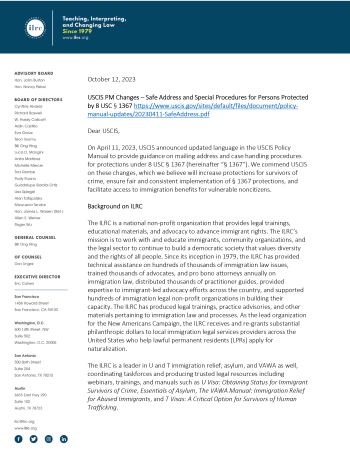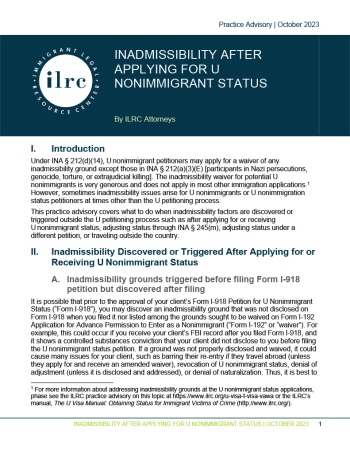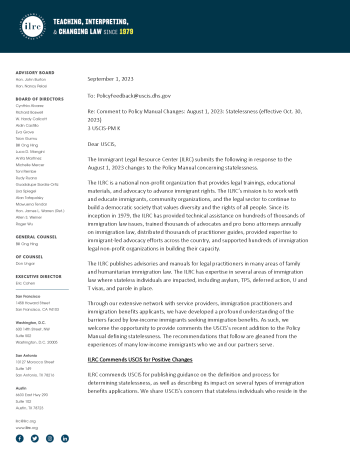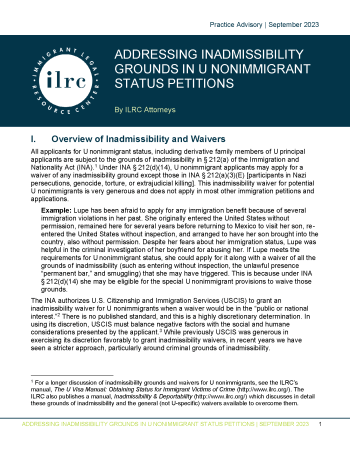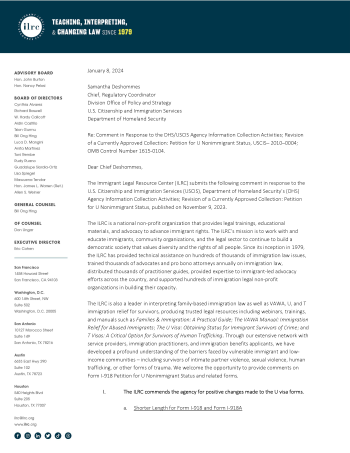

All About U Derivatives
This webinar will cover the different ways that U petitioners can include derivatives, including at the time of filing the principal application, after the principal application has been filed, and after the principal application has been approved...
VAWA: Beyond the Basics
This webinar will address some of the more challenging aspects of representing clients eligible for VAWA benefits, such as issues relating to the representation of VAWA applicants who do not identify as female, gathering evidence of emotional abuse...
The U Visa: Obtaining Status for Immigrant Survivors of Crime
The U Visa: Obtaining Status for Immigrant Survivors of Crime will guide you through the entire process of handling an immigration case for a U visa petitioner—from eligibility screening for U nonimmigrant status, to communicating about the waitlist...
Parole in Immigration Law
The Immigrant Legal Resource Center created the first comprehensive manual about parole in immigration law in 2016 to provide practitioners with a one-stop guide to the legal requirements of all the different types of parole, practice pointers about...
